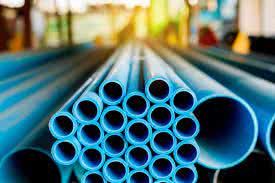Significado de la palabra pipe en español
¿Qué significa pipe en inglés? Descubre el significado, la pronunciación y el uso específico de esta palabra con Lingoland
pipe
US /paɪp/
UK /paɪp/

Sustantivo
1.
tubería, conducto
a tube of metal, plastic, or other material used to convey water, gas, oil, or other fluid substances.
Ejemplo:
•
The plumber fixed the leaking pipe under the sink.
El fontanero arregló la tubería que goteaba debajo del fregadero.
•
A network of pipes carries water to every house in the city.
Una red de tuberías lleva agua a cada casa de la ciudad.
2.
pipa
a device consisting of a small bowl with a hollow stem, used for smoking tobacco.
Ejemplo:
•
He lit his tobacco pipe and puffed contentedly.
Encendió su pipa de tabaco y sopló satisfecho.
•
Sherlock Holmes is often depicted with a deerstalker hat and a smoking pipe.
Sherlock Holmes a menudo es representado con un sombrero de cazador y una pipa de fumar.
Sinónimo:
3.
flauta, pito
a wind instrument consisting of a single tube with holes along its length, played by blowing across or into a mouthpiece.
Ejemplo:
•
The shepherd played a mournful tune on his wooden pipe.
El pastor tocó una melodía melancólica en su flauta de madera.
•
The bagpipes filled the air with their distinctive sound.
Las gaitas llenaron el aire con su sonido distintivo.
Verbo
1.
conducir, bombear
to convey (water, gas, or other fluid) through pipes.
Ejemplo:
•
The city plans to pipe fresh water to the remote villages.
La ciudad planea conducir agua fresca a los pueblos remotos.
•
Oil is piped directly from the well to the refinery.
El petróleo es conducido directamente del pozo a la refinería.
2.
tocar, cantar
to play (music) on a pipe or pipes.
Ejemplo:
•
The musician began to pipe a lively jig.
El músico comenzó a tocar una animada giga.
•
Birds were piping their morning songs from the trees.
Los pájaros estaban cantando sus canciones matutinas desde los árboles.
Palabra Relacionada: